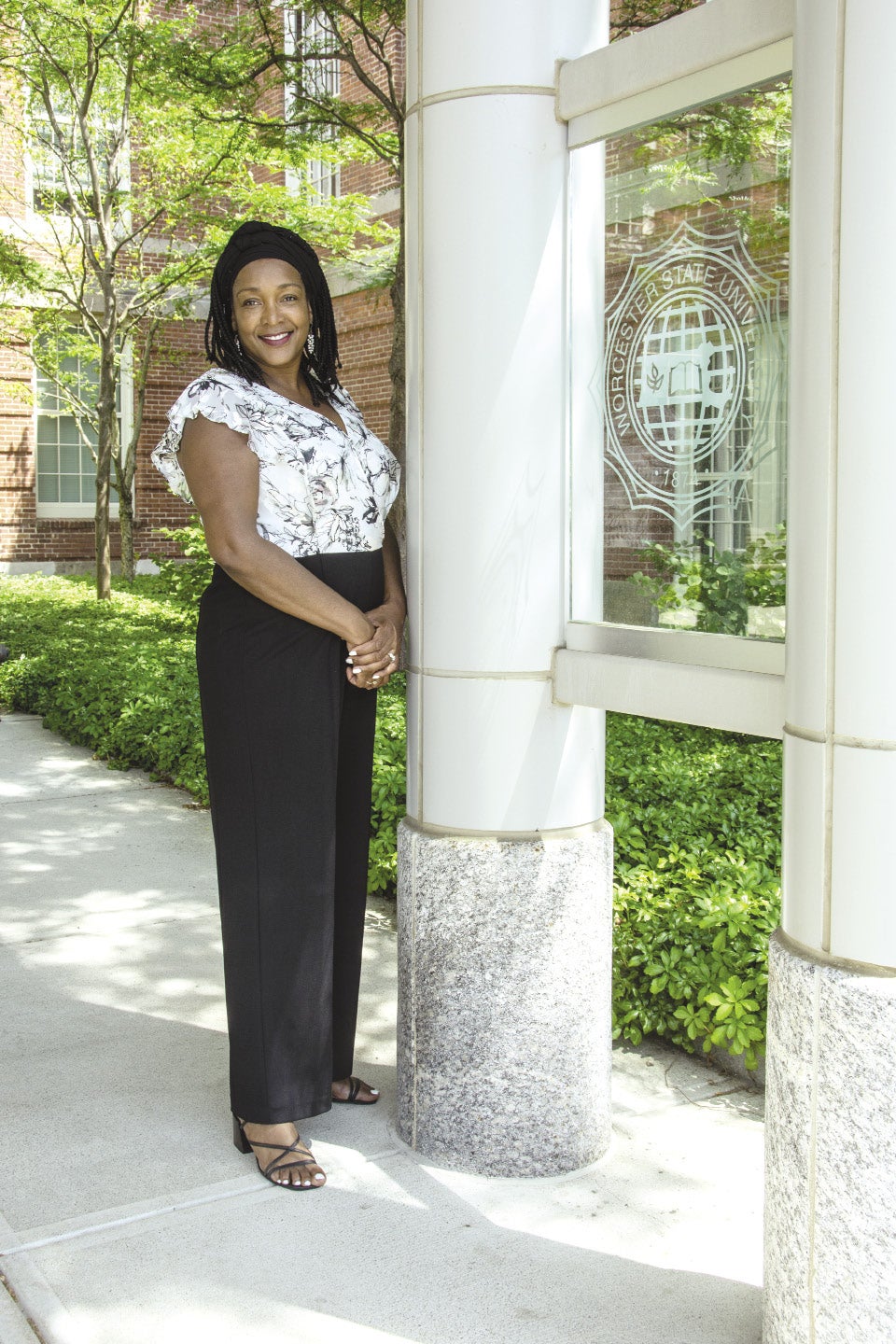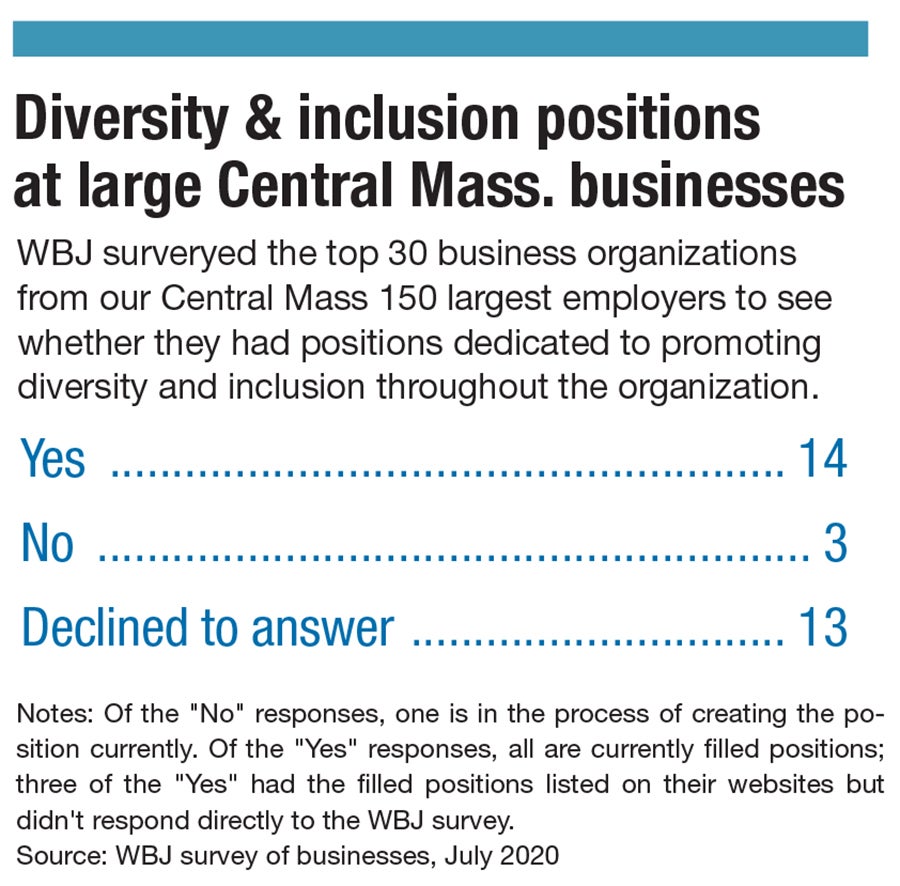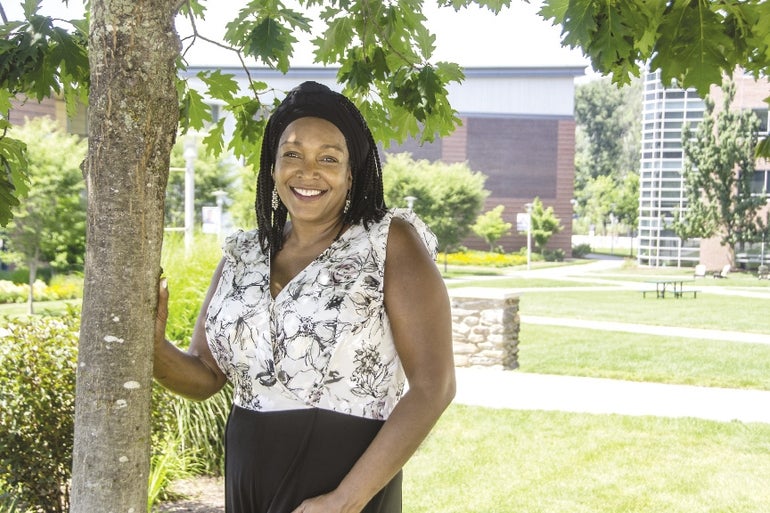Central Massachusetts businesses, against the backdrop of the growing Black Lives Matter movement, are placing renewed focus on diversity & inclusion in their organizations.
Get Instant Access to This Article
Subscribe to Worcester Business Journal and get immediate access to all of our subscriber-only content and much more.
- Critical Central Massachusetts business news updated daily.
- Immediate access to all subscriber-only content on our website.
- Bi-weekly print or digital editions of our award-winning publication.
- Special bonus issues like the WBJ Book of Lists.
- Exclusive ticket prize draws for our in-person events.
Click here to purchase a paywall bypass link for this article.
Central Massachusetts businesses, against the backdrop of the growing Black Lives Matter movement, are placing renewed focus on diversity & inclusion in their organizations.
Worcester Business Journal surveyed the top 30 largest employers in Central Massachusetts in July and, of those who responded, all but two either had an administrative position dedicated to diversity within the company or were in the process of creating one.
“What’s different in the George Floyd moment is that it has woken up a lot of people,” said Amit Taneja, associate provost for diversity, equity and inclusion at the College of the Holy Cross in Worcester.

Black and Latino populations are underrepresented at every career level above the support staff level in comparison to the total population throughout the country, according to a 2020 report international human resources consulting firm Mercer Global, which has an office in Boston.
Black employees make up 12% of support staff positions, but only 2% of executive level positions, according to Mercer.
That lack of representation can create situations where employees of color are marginalized, Taneja said.
“We live in a very divided society and what that means is that the environment is ripe for intentional, and but more often unintentional, microaggressions, microslights, and miscommunication that further marginalizes people that were already historically marginalized,” he said.
In order to change that environment and reality of such low representation among leadership to create equality within organizations and businesses, having administration positions dedicated to diversity & inclusion are vital, said Stacey Luster, assistant vice president for human resources, payroll, and affirmative action and equal opportunity at Worcester State University.

“Every organization should invest in a chief diversity officer type of position in order to demonstrate their commitment to diversity as well as to ensure organizational expertise relating to diversity hiring and retention and to maintain an organizational climate which embraces inclusion and anti-racism,” Luster said.
Worcester State is focusing on increasing minority representation throughout its faculty.
“The primary emphasis originally, and it continues to be a significant emphasis, is diversity hiring,” said Luster.
Hanover’s ongoing D&I work
The Hanover Insurance Group in Worcester has two positions focusing on D&I: vice president of talent, inclusion and diversity, and director of inclusion and diversity. They were both created in 2017.

The vice president of talent, inclusion, and diversity at Hanover focuses on setting and implementing employment and D&I strategies for Hanover, said Carrie Farrell, the current individual in this role.
“I lead teams focused on talent acquisition, training and development, inclusion and diversity, and performance management,” said Farrell.
Farrell’s role not only works with management teams to discuss issues of employment and development, but helps to further cultivate an inclusive environment by requiring that all Hanover employees attend implicit bias training.
“We are focused on continuing to imbed inclusion and diversity into our hiring, performance management, assessment, and development practices so it is further woven into the DNA of our culture,” said Farrell.
Although the Hanover’s commitment to D&I has been ongoing, the public company is working to make even greater strides now, she said.
“While we have made progress, we recognize there is much to be done,” said Farrell, “We are committed to advancing diversity in our workforce.”
One of the ways Farrell looks to do this in the future is through having conversations throughout the company on various uncomfortable topics to help grow the culture of belonging and community in Hanover.
“I am proud of how my role has influenced our thinking, helped establish and lead the inclusion and diversity strategy here at Hanover,” said Farrell.

Infusing D&I into all Holy Cross departments
Holy Cross has a department, the Office of Diversity, Equity and Inclusion, dedicated to increasing D&I efforts by making changes in its employee recruitment and hiring process, and student admissions process.
Taneja’s role as associate provost within seeks to understand how policies and practices are either promoting or are a barrier to diversity at Holy Cross. His work centers on not just moral standards within Holy Cross, but also on tangible action.
“There can be a gap even between our values and our actions,” said Tanjea.
One of the actions Holy Cross has taken is adding questions on job applications about how candidates are committed to D&I and what they have done in the past to promote these values.
This way “every single person is then devoted to diversity, equity, and inclusion,” said Taneja. Part of the work is to “infus[e] diversity, equity and inclusion in every single department, office, and program, so that it doesn’t become that if it’s a diversity thing it only belongs in the diversity office.”
Another part of Taneja’s job is to create focused training opportunities to have comfortable diversity.
“How can we create conditions for people to be able to work past those barriers or discomfort in working with or interacting with someone who is different from them and to make meaningful deeper connections?” said Taneja.
In July, Holy Cross announced its 40-point Anti-Racist Action Plan to work on D&I issues and action specific to race. This plan along with its previous D&I plan from 2019 come together to harness the surge of anti-racist energy from the renewed Black Lives Matter protests to make structural changes.
Though Holy Cross had already begun conversations about a plan, the nationwide protesting and focus on anti-racism gave the school an opportunity to capture the energy of that moment, said Taneja.
The anti-racism plan is a starting point of the conversation, he said, but his role and department will continue to develop transparent and coordinated action plans to increase D&I and safe, diverse spaces for students and faculty.
“I won’t claim that we have gotten it all fixed, but we’re looking structurally on how we elevated this as an institutional commitment,” said Taneja.
Price Chopper’s inward evaluation
In the WBJ survey, Price Chopper Supermarkets, headquartered in New York, said it did not currently have a position devoted to diversity and inclusion, but has begun examining the ways to serve their employees and communities better.

Price Chopper has always focused on diversity and inclusion through its equal opportunity employment policies, and is strongly looking at creating an administrative position dedicated to D&I, said Mike Miller, vice president of human resources operations at Price Chopper.
This position would be responsible for employee engagement and training around issues of D&I, employment practices, and community outreach. It would partner with leaders in the company to execute companywide programs.
“Now critically looking inward to see what we can do better,” Miller said.
Historically, Miller said Price Chopper has always worked to provide training, scholarships, and development opportunities to have staff accurately represent the communities it serves.
“State by state, region by region, we try to have our workforce mirror the community as best as possible,” said Miller.
Though this has been its work in the past, Price Chopper recognizes it has to do better, said Miller.
Therefore, the company is engaging with employees through conversations about what social injustice means to them and our Price Chopper fits within it.
“Our current action,” said Miller, “is looking inward and engaging with our own people.”
The evolving nature of D&I
Positions specifically devoted to issues of diversity & inclusion allow companies to be constantly moving forward, creating more equitable workforces and environments, Luster said. These positions themselves, though, shift in focus as times change.
“The elements are vast, and the emphasis does change depending upon what is going on in the climate … like right now since the murder of George Floyd and the resurgence of the BLM,” she said.
The focus of positions dedicated to diversity and inclusion have begun to shift.
“The emphasis has [now] shifted from diversity and inclusion to social justice” said Luster.
This shift pushes officers to not just think about inclusion, but why there is not inclusion in the first place, said Luster.
“Now we’re getting to the root cause…[asking] what are we going to do about that,” she said.
Yet, the work must go beyond just positions dedicated to this work, Taneja said.
“How do we create a more diverse workforce, but also how every single person is committed to diversity, equity, and inclusion work,” said Taneja.
“To be anti-racist is to mean you’re actually committed to it in action,” he said.

